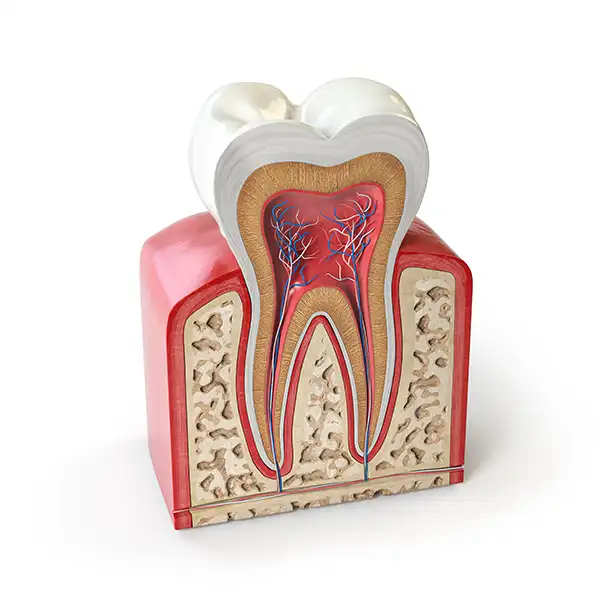Root Canal Treatment Huntington Beach CARoot Canal Treatment provided by Surf City Oral and Maxillofacial Surgery in Huntington Beach, CA  Root canals are not as common as you might think. Between 10 to 15 percent of all adults have had a root canal procedure at some point in their lives. While root canals are rare, they are extremely beneficial because they can help save a tooth. Root canals are not as common as you might think. Between 10 to 15 percent of all adults have had a root canal procedure at some point in their lives. While root canals are rare, they are extremely beneficial because they can help save a tooth. Why Do I Need a Root Canal?Usually, people need root canals because they have an infected tooth. Like most infections, your tooth infection did not start as an actual infection. Your infected tooth began because of bacteria you can find in your mouth on any day of the week. Bacteria are always present in your mouth. Much of the bacteria you have in your mouth helps digest food. However, there are bad bacteria along with good bacteria, and these bad bacteria cause issues with your teeth and gums, causing both gum disease and cavities. All cavities start as plaque on one of your teeth. The acids from bacteria combine with food particles, saliva, and bacteria to create plaque. Bacterial acid can erode the top layer of your tooth, which is called the enamel. Enamel is the strongest substance your body makes, but it is no match for acid. If our surgeons can diagnose your tooth decay early before it reaches your dentin, your dental caries can be filled quickly because it is still shallow. However, if it has been a while since you have seen our surgeons, the bacteria in your mouth will continue to erode your tooth enamel through to the second layer called the dentin. At this stage, your dental caries become a cavity. If the cavity is not filled, it will continue to erode a hole in your tooth until it reaches your tooth pulp, which is in the middle of your tooth. Your tooth pulp contains soft tissue, blood vessels, and nerves, as well as the tooth roots that connect your tooth to your jawbone. Signs You Need A Root CanalThere are some signs you need a root canal. If your cavity reaches your tooth pulp, it will begin an infection. You may start to feel pain in the tooth at this time, especially when you eat something hot or cold. You may also experience pain when you bite down on food. If the infection in your tooth is not treated right away, you will eventually lose the tooth. Also, the infection in the tooth can spread to other teeth, gum tissues, and even your jawbone. When your tooth infection reaches the tooth pulp and begins an infection, the only thing that may save your tooth is a root canal procedure. The benefits of root canal treatment are that it can cure the infection and relieve pain from the infection. Also, root canals allow you to keep your natural tooth in place.  Root Canal Procedure StepsMany adults think that a root canal is a complicated procedure, but treating your infected tooth is a fairly simple undertaking. First, we will make sure the area around your infected tooth is completely numb so you can be comfortable during the procedure. Next, we will gain access to your tooth infection. Usually, this means an incision into the top of your tooth or along the side of your tooth so they can access the tooth root and the tooth pulp. The next step in root canal treatment is to remove the infection and the soft pulp from the center of the tooth. The tooth pulp will be replaced with composite, which is a type of plastic resin. Once the infection has been removed and the area treated, our surgeons will place a temporary crown over your tooth until your permanent tooth crown is ready. Root canal crowns are usually made of a metal cap overlaid with porcelain, so they look and function like natural teeth. Once your permanent crown is prepared, your temporary crown can be removed. Then, your permanent crown is adhered onto your tooth to cover it and protect it from cavities and tooth damage. Care and Recovery After a Root CanalIf you are going to have a root canal soon, you need to know how to care for your tooth once the root canal is over. First, be sure to take over-the-counter pain medication before you start to feel significant pain. Many people find that their tooth feels better after the root canal procedure because the infection has been removed. However, if you do experience discomfort after a root canal, ice packs may help. Also, be sure that you eat a soft diet for a couple of days so that your tooth can begin to heal. If you are a tobacco user, try not to use tobacco while your tooth is healing because nicotine slows down healing. What Are Some Warning Signs After a Root Canal Procedure?While you are recuperating after a root canal procedure, there are some warning signs you need to look for that may require you to give our office a call. First, if your pain level suddenly increases from mild discomfort to severe pain, you need to call our office. If you have a fever that is higher than 100.5 degrees F, give our office a call as well. Sometimes, people who undergo a root canal may notice a bump on the gum tissue near their tooth. All of these symptoms may mean that you have an infection that is getting worse and needs further treatment. Root Canal vs. ExtractionRoot canal treatment is extremely successful. Between 88 and 98 percent of all root canals are successful. However, there is a slim chance your root canal may not be successful. If your root canal fails, our surgeons can try a different procedure to try and save the tooth. As a last resort, Our surgeons can extract the tooth, replacing it either with a dental implant or a dental bridge. If you are having tooth trouble, it is time to get your tooth fixed before it becomes a much larger problem. Why not reach out to Surf City Oral and Maxillofacial Surgery today to make an appointment for a consultation? Call us at 657-384-2787 today! |
|
|